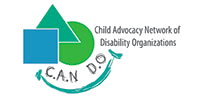What are Speech and Language Impairments?
Speech and Language Impairments are communication disorders that negatively affect a child’s educational performance, and these include stuttering, impaired articulation or language or voice impairment. These delays and disorders refer to problems in communication, and other related areas such as oral motor function. These range from simple sound substitutions to not being able to use or understand language or use the oral-motor mechanism for functional speech or feeding.
The 4 main areas where speech or language impairments occur include: Articulation, (child produces sounds incorrectly- eg. lisp, or difficulty with certain sounds such as ‘l’ or ‘r’), Fluency (child’s speech is disrupted by sounds, syllables and words that are repeated, prolonged or avoided), Voice (child’s voice is not normal in pitch, loudness or resonance), Language (child has difficulty expressing ideas, needs or information, or understanding what others say, reduced vocabulary).
Signs and Diagnosis
Often parents are the first to notice that a child is experiencing delays and problems in acquiring speech or language skills, and if they are behind other children of their own age with gaining these skills.
Some common causes for these disorders include loss of hearing, intellectual disabilities and neurological disorders or injuries to the brain. Physical impairments such as cleft lip or palate could also cause these disorders.
It is very important to take action if a child is suspected to have speech or language impairment.
Treatment
Once a problem is identified, a proper diagnosis of specific speech or language impairment is required, for the correct treatment to be provided for the child.
The child should then be referred to medical or professional help, and provided with individual speech and language therapy and services. Counseling and guidance should also be provided for children and parents regarding speech and language impairments.
Some problems the child may face at school include not being able to effectively communicate with teachers and other students, difficulties in giving or understanding oral presentations, and participating in classroom discussions. The child’s teacher should be consulted, to find out ways to lessen communication difficulties, and to discuss the child’s needs and how best to address these challenges.
Children with speech and language impairments such as a lisp or stutter are sometimes bullied because of these disorders, and taking class time to teach about bullying can help prevent this.
For some children, speech and language therapy may have to be continued throughout their school years. Speech and language impairments that need long term attention usually remain manageable. Technology can also help children with speech and language difficulties. It is essential to learn as much as possible about the child’s difficulties, and to be patient with the child.
Source:
http://www.parentcenterhub.org/repository/speechlanguage/
http://www.ldonline.org/article/6336/
http://www.specialeducationguide.com/disability-profiles/speech-and-language-impairments/
